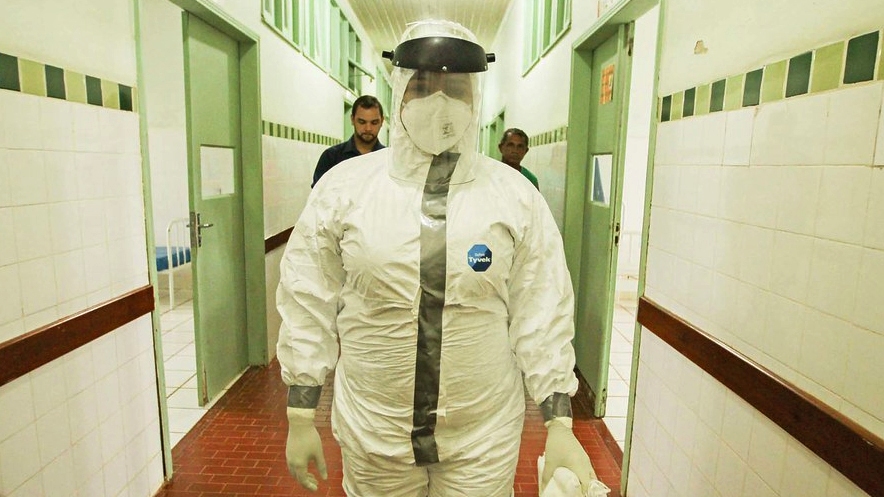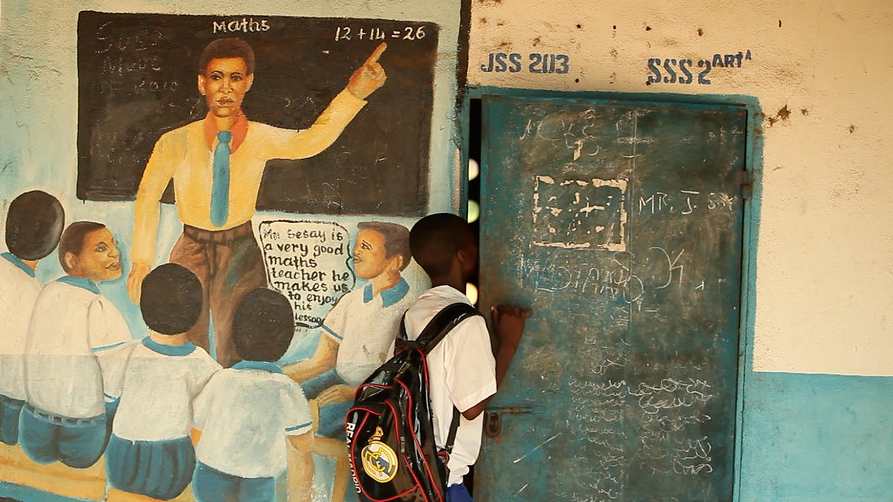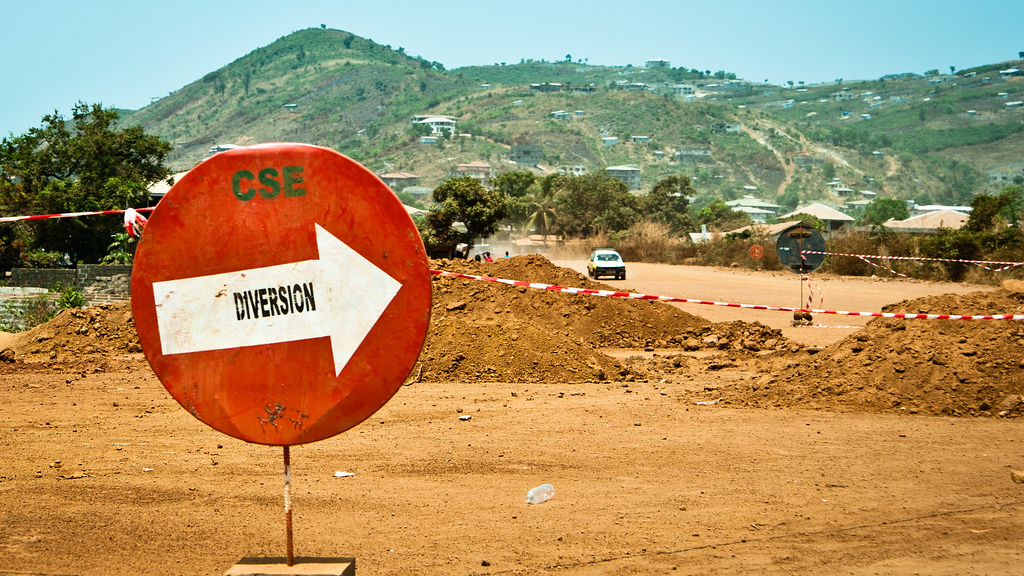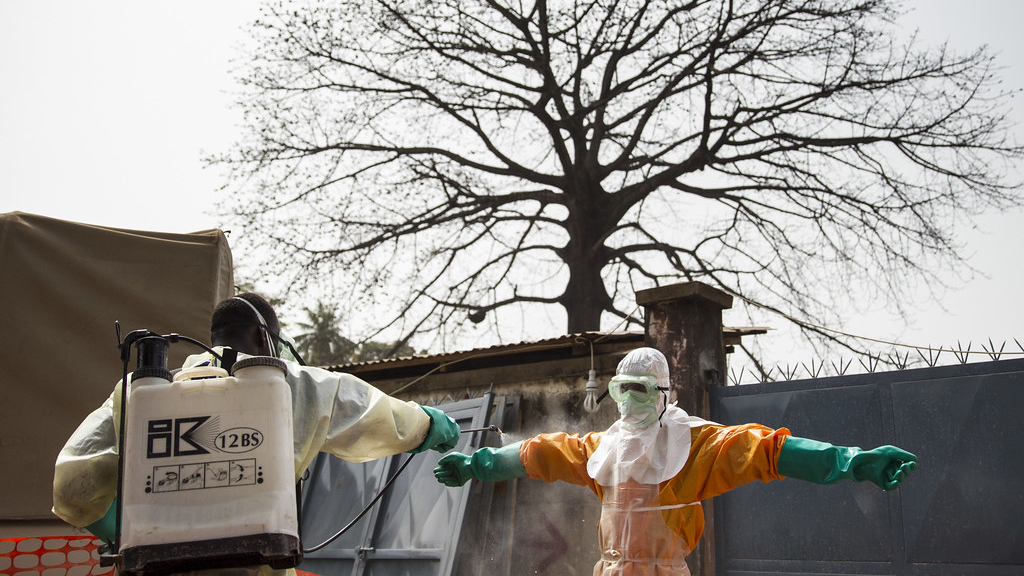Sierra Leone’s educational attainment has fallen behind other countries in the WAEC region, and questions are being increasingly asked about who is responsible. Feika Mohammed explains the attitudes to schooling and education within Sierra Leone and highlights areas for urgent attention.
This post is part of Njala Writes, a blog series resulting from a writing workshop hosted at Njala University, Sierra Leone in June 2019, in collaboration with the LSE Firoz Lalji Centre for Africa.
The West African Examinations Council (WAEC) is an examination board formed to oversee educational development in English-speaking West African countries. The council has developed a team of well-trained and highly motivated staff which conducts examinations across its member countries at all levels. The member countries of this examination body include Sierra Leone, Liberia, Ghana, the Gambia and Nigeria.
Thousands of todays’ graduates from these countries went through its examination system (WASSCE), with many working in reputable organisations. Others are still searching for jobs. Thousands of these candidates are enrolled in universities pursuing degree programmes and some, having achieved university requirements, await to be enrolled into tertiary institutions and universities.
While some students have succeeded in passing this examination, there has also been a mass failure of poor pupil performance, especially in Sierra Leone. According to the WAEC Statement on the 2017 examination results, published in The Standard Times newspaper, while senior secondary results are improving in Sierra Leone it remains behind other WAEC countries. Almost 40 per cent of students failed to obtain a single WASSCE credit (C6 or better) in 2017 and only 10 per cent received credits in four or more subjects, with just one in 20 per cent obtaining the five credits needed for university entry.
Sierra Leone’s underperformance of students has become a serious concern. Public unhappiness with regards to the low success rates of students is clearly noted each time the WASSCE results are released, with outcomes failing to match government and parental expectations nationwide. In my view, this situation has worsened over the last ten years, even where innovations have been introduced into schools, such as the use of ICTs, free basic education in all government assisted classrooms and teaching of core subject areas and practical subjects on radio and television broadcasts.
Stakeholders continue to wonder who or what is responsible for this drop in academic standards. Blame takes many forms with some people shifting such onto government, while others target school authorities including teachers, as well as parents and students themselves. There have been accusations and counter-accusations as to whom is responsible for this mass academic failure.
All these stakeholders have roles to play in fixing the problem. However, there is a need to identify the major causes with a view to providing lasting solutions.
The school authorities
One of the world’s most important educational resources is the teacher. A teacher can significantly influence students’ achievements and prepare the young for their roles in society, dependent on the quality of the teacher in terms of their qualifications and experience. In Sierra Leone, most teachers are not on a regular government payroll and are forced to look for extra sources of income in order to sustain themselves and their families. This prevents them from focusing on their assigned educational tasks. In addition, the majority of schools across the country face problems with the availability of materials for practical science subjects such as Chemistry, Biology and, crucially, Agriculture.
The government
The government’s inadequate salaries for teachers is contrasted with other parts of the world, such as Finland, where teachers are well-paid and rated highly. Teacher welfare is very important in these countries, and they earn a salary very close to the national average level. It is possible that in Sierra Leone, because of poor financial security, teachers are no longer committed to their duties.
There is also an evident neglect of general conditions in public secondary schools in Sierra Leone, which has caused both teaching and learning to decline considerably in quality. This has left teachers with no alternative than to work in poor conditions, which have an adverse effect on students’ academic performance. Asking pupils in schools today about their future job aspirations, it seems that nobody wants to be a teacher anymore. Newly qualified teachers are frustrated because they do not find paid employment, while older ones are leaving the field. The result is a lack of commitment and professional ineffectiveness.
The attitudes of pupils and parents
Another reason of failure in the WASSEC exams can be attributed to some candidates’ lack of knowledge of common pitfalls, coupled with inadequate coverage of the syllabus and non-familiarity with the exam format.
Specifically, a major issue is the lack of candidates’ strong reading skills, with an absence of interest potentially overpowered by attention to social media platforms such as WhatsApp and Facebook during and after school. There is also low retention, and association with the wrong peers. Most pupils do not engage in extra work or classes in their subject areas which may complement their normal schoolwork.
Parents also play important roles in the education of their children, with high expectations. Apart from paying school fees and other levies, they buy textbooks, uniforms and other materials required by their children and wards. Additionally, they are expected to supervise the academic work of their children and give them good moral training. They are also expected to visit schools from time to time with a view to taking corrective measures when necessary. However, the failure of parents to play these roles could negatively affect the academic performance of the students.
In Sierra Leone, it is widely believed that students’ poor academic performance is caused by the parents. Some people believe that polygamous families pay less attention to certain children in their families, which can translate into poor academic performance. Some families also struggle to ensure a regular breakfast for their children and to pay for textbooks and other basic school needs. Moreover, there is often not enough interaction with children’s teachers and little involvement in the Parent-Teachers Association (PTA). However, other causes of the failure of students in WASSEC examinations could be traced back to parents’ lack of proper guidance and the insufficient provision of the necessary materials granted for their children to work in school and at home.
In sum, these factors might shed some light on the continuing failure in the WASSCE examination here in Sierra Leone, and why candidates from other member countries of WAEC record high successes in their examinations, while Sierra Leonean candidates cannot keep up. These questions are especially pressing when all countries have the same syllabus, and the same number of years spent in the Senior Secondary School level.






I support the lack of qualified teachers is part of the problem …,.,,Family issues like those mention in your article have always being their. See the confused state of education in SL compared to Nigeria,Ghana & Gambia. Gambians use to get good education in SL,so ask yourself what happen?? Politics have a massive role to play. Politics in SL have demished every sector of development eg sports,medicine,engineering,education etc
Parents do have a role to play in every part of life but what role does the govt play,where are the social services like providing food help,lodging,electricity etc. politics in SL have diminished everything. Corruption is at its highest degree,blind leading the blind,go up FBC then you will see the evidence. Just compare FBC from 1995 to present day and make your own conclusions
All said is true.Mohamed.All the partie you mentioned are responsible for the mass failure of student in the wassce exam.Thank you very much for the postings.
Much more that that. the Government also contributed to the downfall of our academic system. the Government should take the Lion share of the Blame. Go back to 1977 that was the demise of an academic system built up by the British since 1827
All about that is true
no proper assessment in schools. wrong pupils go to the next stage
Upgrading of Waec 2018 Gce result is 100% possible with the help of Mr Paul who works in Waec office Abuja, you can be able to upgrade your waec gce result with ease when it is released, i my self never believed in upgrading but today i am happy and all was due to the help of Mr Paul who helped me to upgrade my English which have been giving me problem, i will advice if you are having any subjects giving you problems in your result or having other issues concerning your waec, neco, jamb etc? Don’t waste much time just contact him on What’s App +2347069717166